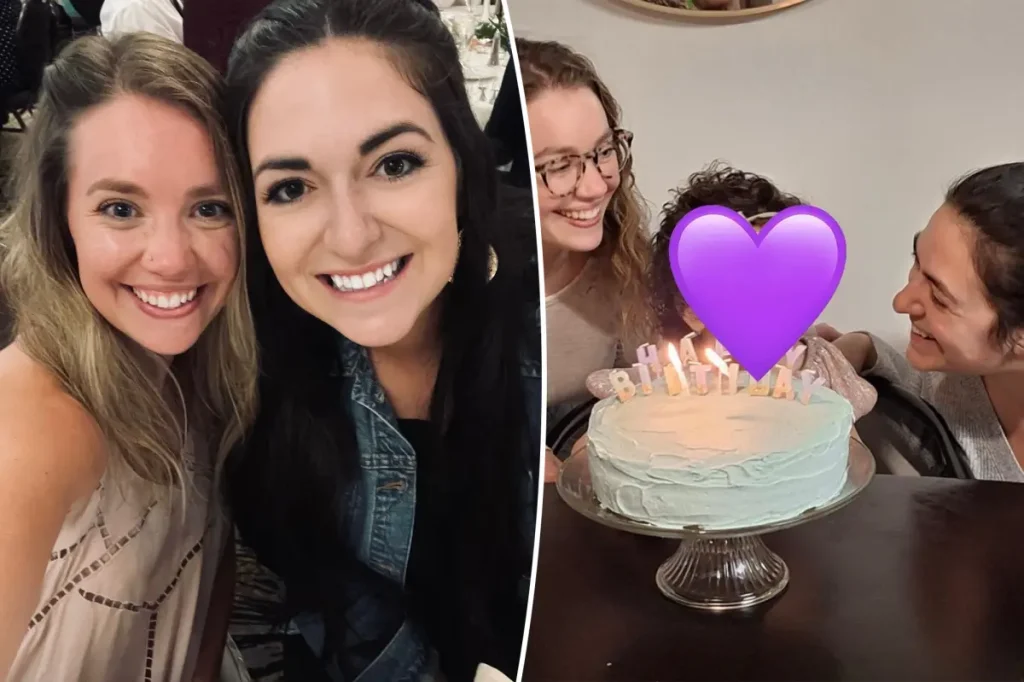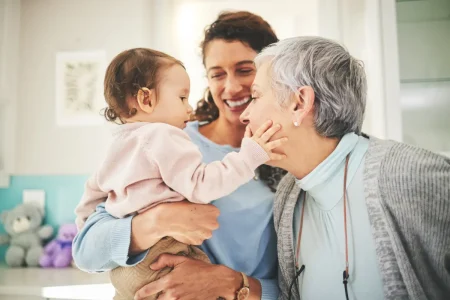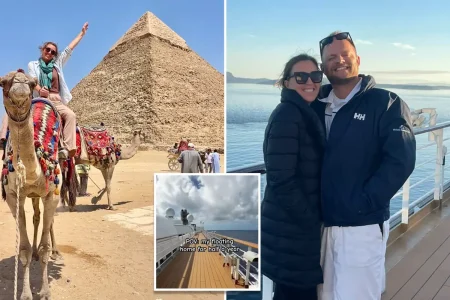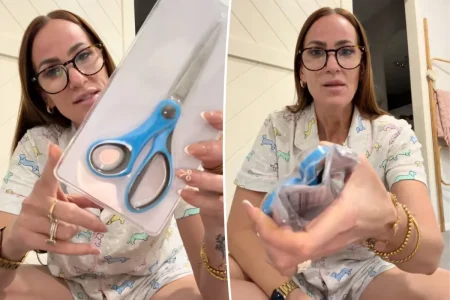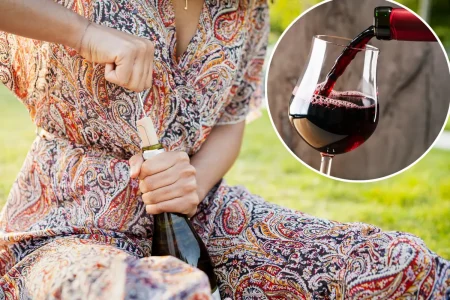A Modern Take on Motherhood: Best Friends Become Co-Parents
In a heartwarming twist on traditional family structures, best friends Natalie and Shelbey have embarked on an unconventional journey together: platonic co-parenthood. After 14 years of friendship, these Wisconsin women in their early thirties made the life-changing decision to become foster parents to a toddler girl in May 2024. Natalie, a pediatric development therapist, approached Shelbey, a service coordinator for children with disabilities, with the proposal two years ago. “I really want to foster a child. Do you want to do it with me? Let’s pursue this together,” Natalie suggested. While Shelbey initially found the idea startling—having always envisioned marriage and biological children in her future—she eventually embraced the opportunity. “Things weren’t going the way I’d anticipated, and I just decided to love and help raise this child,” she reflected. “It’s been really wonderful.” Their story exemplifies a growing trend among those unwilling to put their dreams of parenthood on hold while waiting for romantic partnerships to materialize.
The pair represents an emerging social shift where traditional family models are being reimagined and reshaped. Like celebrities Anderson Cooper and Van Johnson, these women have chosen to raise a child with a trusted friend rather than waiting for marriage or pursuing single parenthood alone. However, experts caution that such arrangements require thorough preparation. Barbara Greenberg, a clinical psychologist from New York City, warns that “co-parenting can get very complicated, even among very good friends.” She emphasizes the importance of advance planning regarding parental labels, holiday celebrations, living arrangements, and navigating potential romantic relationships. Family law attorney Lara Traum similarly advises friends considering co-parenting to each hire independent legal counsel and establish clear parenting agreements. Despite these complexities, Natalie and Shelbey’s shared values and similar parenting philosophies have provided a solid foundation for their unconventional family structure.
Their complementary parenting styles have proven to be one of the greatest strengths of their arrangement. “We’re very similar in how we parent,” Shelbey explained, adding that she and Natalie both strive to be “very positive parents.” She even suggested that their feminine approach to parenting offers advantages, joking that “men don’t just always get it” when it comes to gentle child-rearing. “I couldn’t imagine raising a child with a man, because I just don’t think they’d offer the same level of care and understanding as a woman,” Shelbey remarked. Before becoming foster parents, both women underwent rigorous screening processes including background checks, training sessions, home studies, and intensive interviews to ensure they were prepared for the responsibilities ahead. This thorough vetting process strengthened their commitment to providing a nurturing environment for their foster daughter.
The dynamics of dating while co-parenting present unique challenges for the friends. Shelbey acknowledges that explaining their living situation to potential partners can be awkward, calling it “a weird dynamic to explain.” Meanwhile, Natalie has chosen to focus on their foster daughter rather than romantic relationships, stating that dating “isn’t worth” her time currently. For Shelbey, a potential partner’s reaction to their co-parenting arrangement serves as an effective screening tool. “If someone isn’t understanding of our situation, then he’s not the right person for me,” she explained. Surprisingly, she reports that several men have been “open and accepting” of their modern family setup, with some even embracing the uniqueness of the arrangement. “I have had people who loved [that we are foster co-parenting],” she shared. “They’re like, ‘Weird is good. Why be normal?'”
When Natalie recently shared their story on TikTok, it resonated with over 83,000 viewers, many of whom were intrigued by this alternative approach to parenthood. For Natalie, the emotional support that comes with co-parenting has been invaluable. “The mental load of foster care is really heavy,” she explained, “but having somebody to go through that with you—someone who’s equally invested and your best friend—makes it easier.” Their current arrangement involves fostering rather than adoption, as Wisconsin state law does not permit two single co-parents to legally adopt a child together. Should their foster daughter ever become eligible for adoption, only one of them could become her legal parent. However, they’re focusing on their present responsibilities rather than worrying about hypothetical future scenarios.
Looking ahead, both women have established clear boundaries regarding how potential marriages would impact their living situation. They’ve decided that if either of them marries in the future, the new spouse would need to move into their shared home as long as they’re caring for their foster daughter. “If one of us gets married, that person’s partner is just going to have to move into our house and join our family,” Shelbey stated firmly. “We have a very established life, and that’s just how it’s got to be.” This unwavering commitment to their chosen family structure demonstrates the depth of their dedication to both their friendship and their foster daughter. While their path may not follow conventional norms, Natalie and Shelbey’s story offers an inspiring example of how love, friendship, and mutual support can create a nurturing environment for a child, proving that family can be defined by commitment rather than traditional structures.





